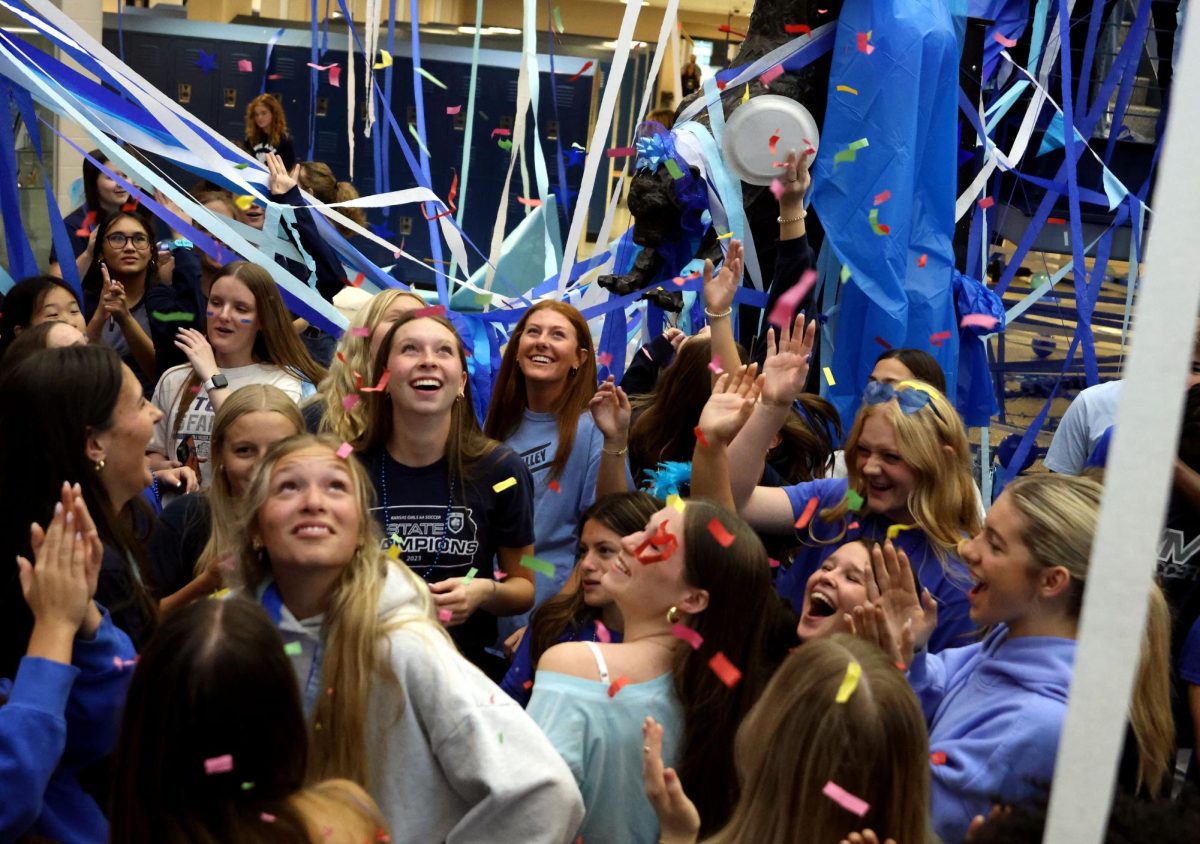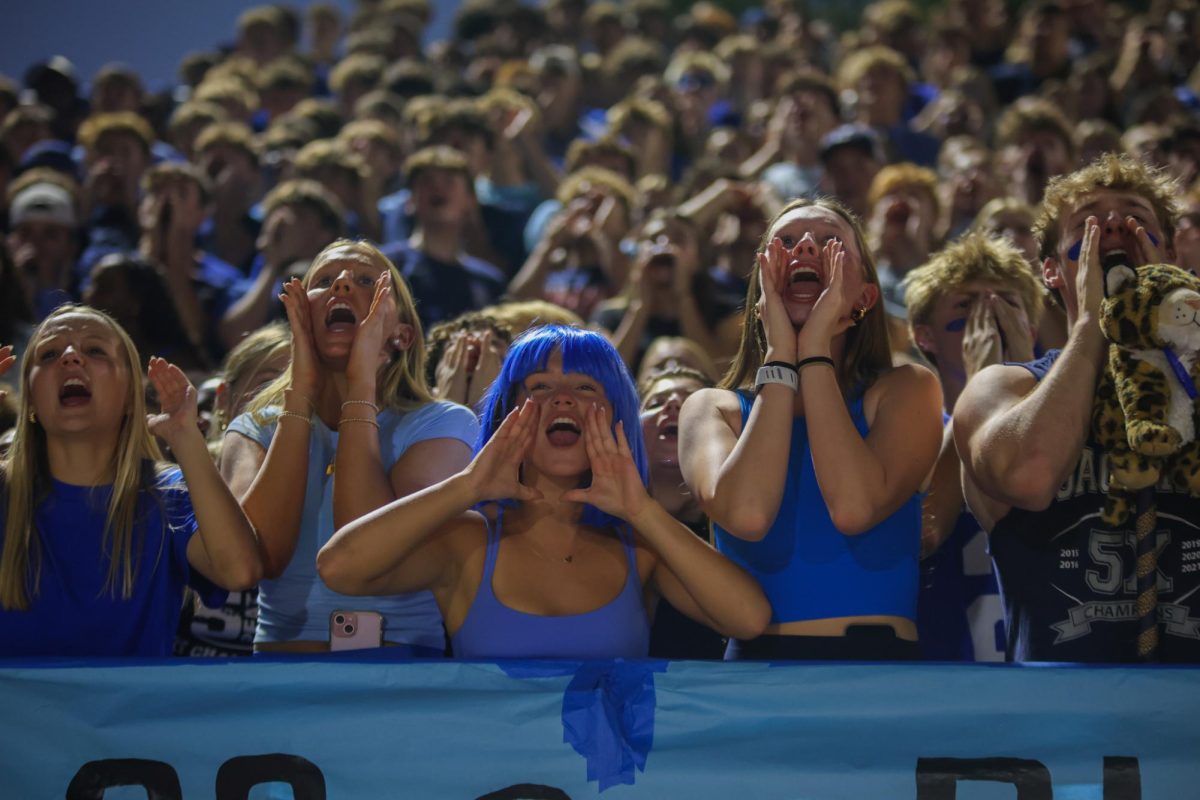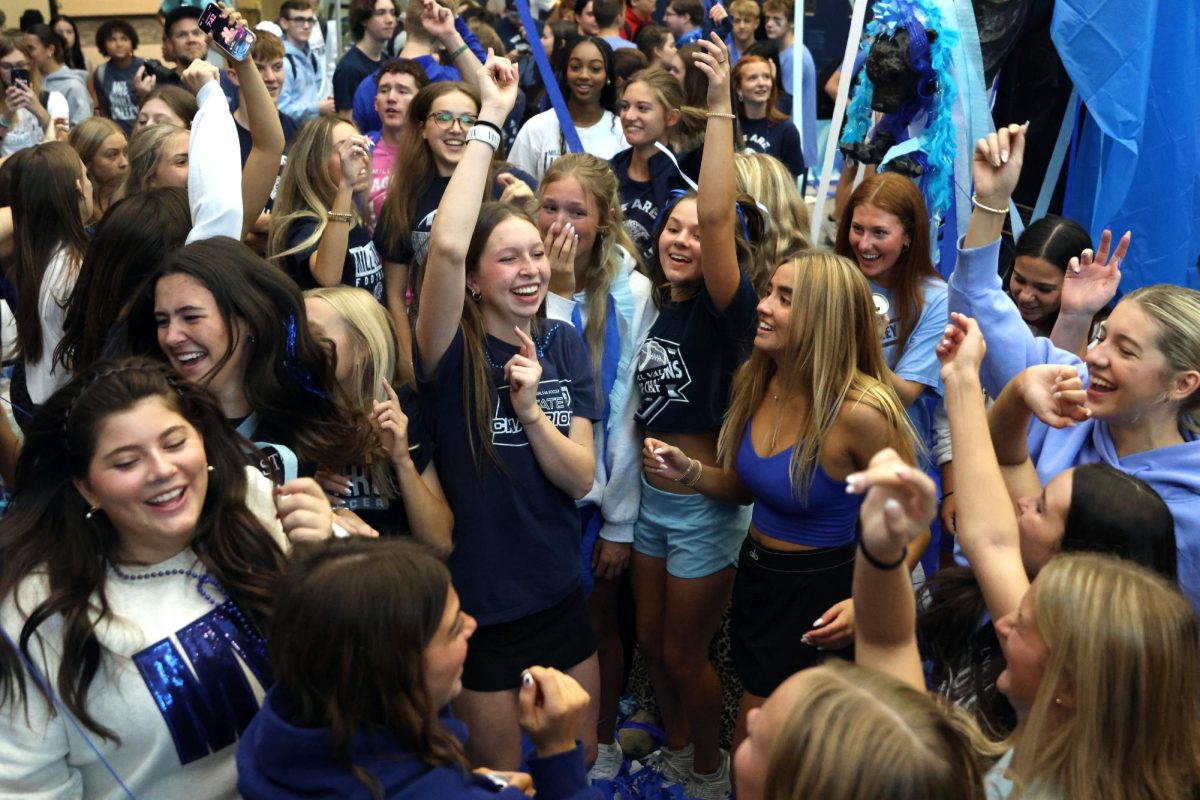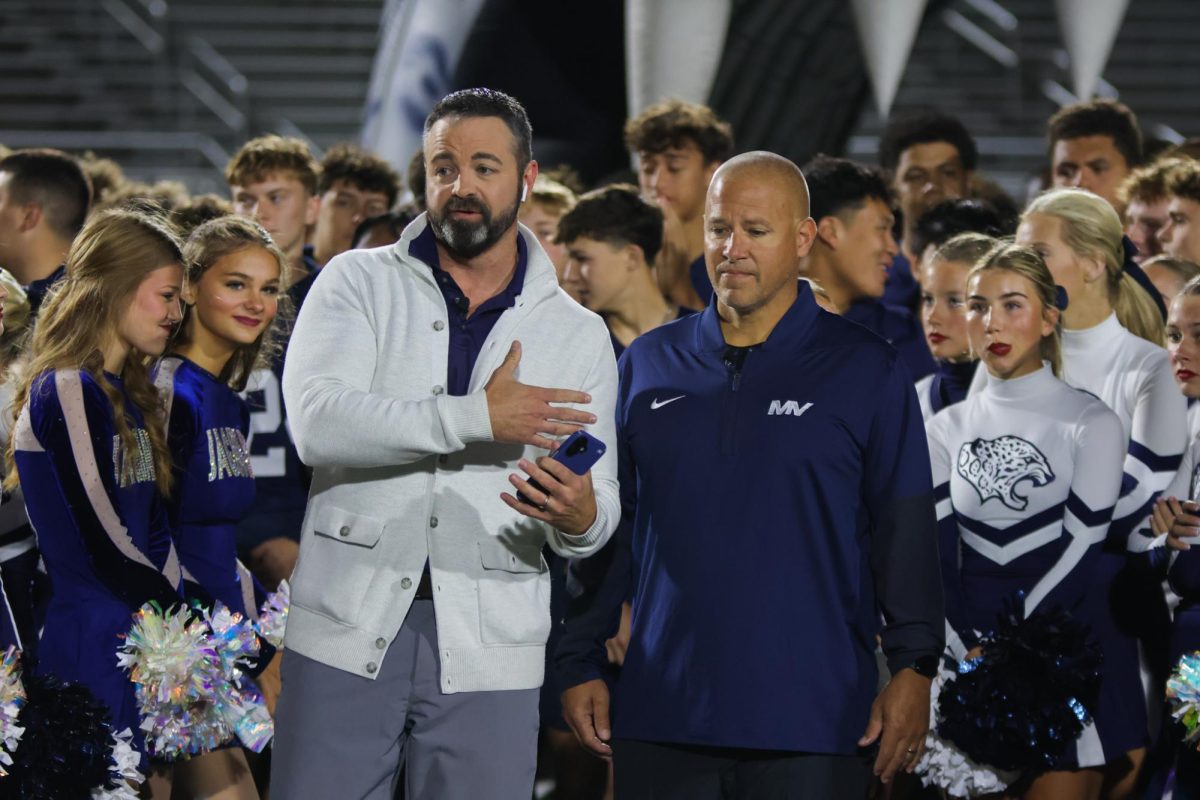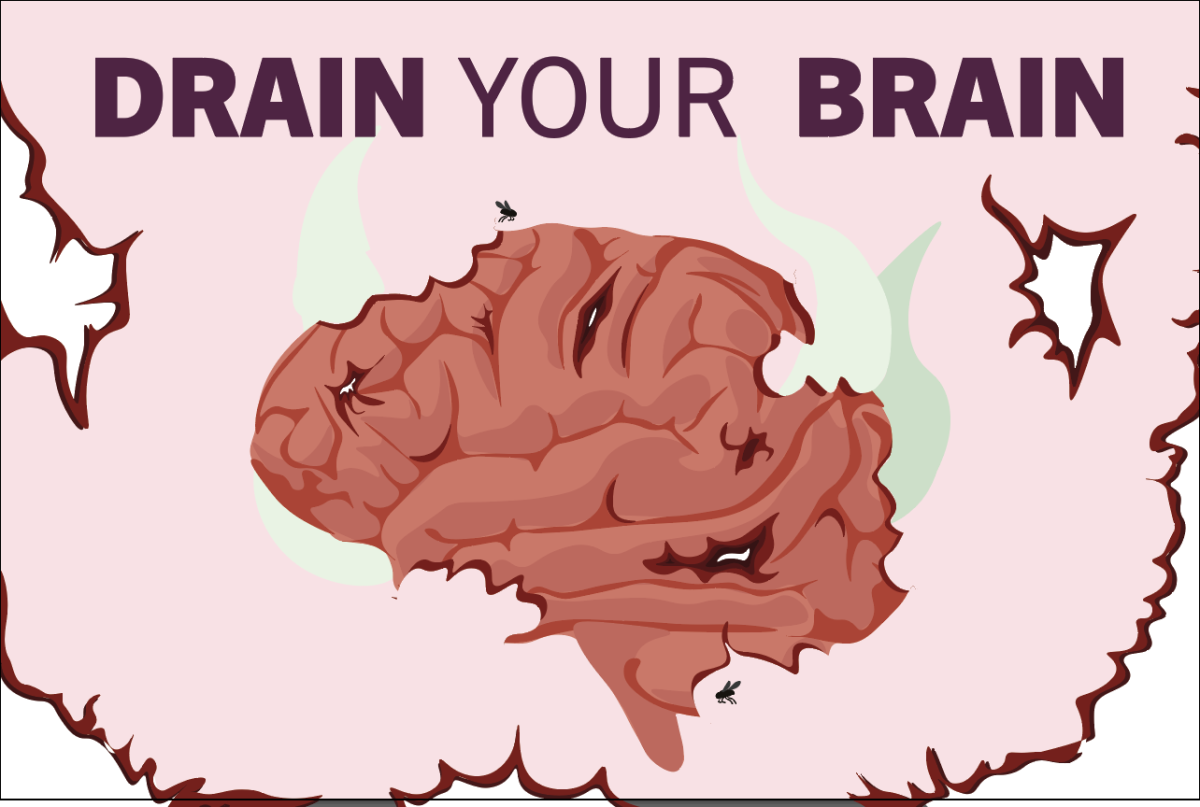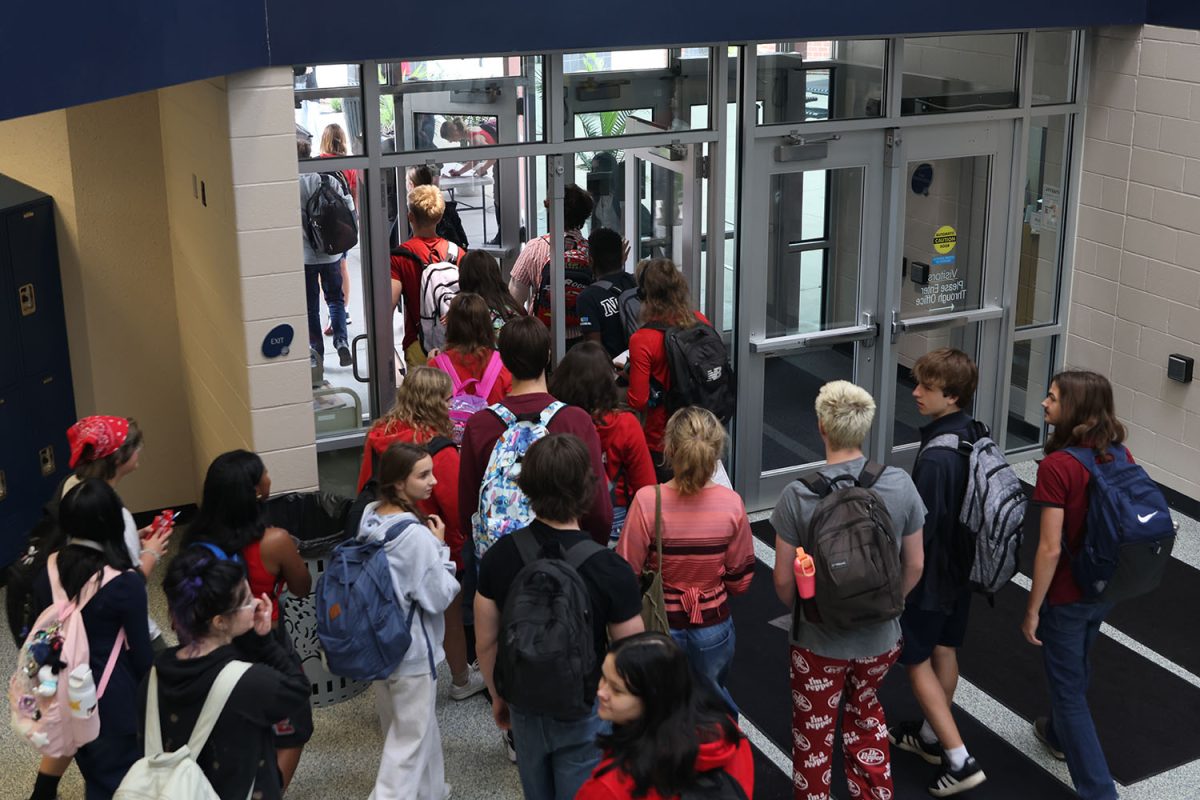Around The World
A study conducted in 2024 by the Walton Family Foundation aimed to understand why students’ interest levels have gone down recently. The study surveyed 4,147 young adults ages 12 to 27, focusing mainly on high school students.
The study observed many different important factors in students’ interest in school, including after high school plans. The study found that those who plan on college might feel more motivated or interested in school. Of the students surveyed, who don’t plan on college, 52% say they have learned something interesting in school compared to 65% of students who plan on college.

Another important factor the study observed is teachers making school interesting. About 60% of students said that teachers were the reason they were interested in a topic in school. As well, 73% of students said that their favorite teachers cared about them as people.
The JagWire surveyed students at the school to observe if students’ at the school showed similar trends. Of the 139 students surveyed 45% said that their college plans are what motivate them as well another 36% of students said disinterest in certain subjects impacts their feelings about school.
At the school both teachers and students alike have observed similar factors impacting interest: post high school plans, the schools support in post high school plans and the impact teachers can have on students’ interest.
Where To Next?
One of the most important factors the study discussed was how students’ future plans may impact their interest in the classes they take.
Many students don’t see the importance of their classes, especially those students who don’t plan on going to college.
Junior Addison Chapman doesn’t plan on going to college, instead possibly going to cosmetology school after high school. Chapman sometimes struggles to see the importance of her schoolwork.
“I mean there’s a lot of stuff that probably I won’t ever need to use,” Chapman said. “I can guarantee you I won’t need to use a lot of the stuff I’ve learned in math, but stuff in art or my graphic design classes I’m taking, I can see myself using that [in the future].”
Similarly, principal Dr. Gail Holder understands how students may not see the relevance of their classes based on their future plans.
“There are so many occupations that require perhaps only a high school diploma or a certification or students are choosing to go into fields that do not require a four year degree, such as going straight into the workforce, going into the military, going to going straight into a trade, to be an apprentice in some way,” Holder said. “And so the relevance of sitting through an English class is not as important.”
Many students are motivated by their future plans but others might feel like they won’t need to try in high school to succeed afterward. Many colleges in recent years have changed their application processes to be test optional. State schools such as The University of Kansas accept those with a cumulative GPA of 3.25 or higher. For some students these lesser requirements don’t motivate them to try harder in their classes.
This is true for junior Owen Brookshire who plans to go to college but doesn’t feel motivated by the requirements to get in.
“I’ve grown more uninterested in school just because the requirements to get into college are just so easy that there is no real point in trying that hard,” Brookshire said.
According to math teacher Kevin Mosher, students also struggle to figure out what they want to do after high school, which impacts how motivated they are to do school work.

“I think part of it is that students are less decided upon what they want to do outside of high school, so it’s taken them longer to get to the path that they want to get on and jump onto,” Mosher said. “[I also] think all the ways to make money, non traditionally, have really ramped up to where people see that, and they don’t think that you need education.”
While some students feel like what they learn in their high school classes does not apply to their future plans, others are less motivated by the structure of high school classes. Some students feel that school doesn’t challenge or interest them.
Junior Stella Beins, who plans to go to cosmetology school after high school, doesn’t enjoy when assignments don’t have any meaning.
“Making [assignments] have a clear purpose [helps],” Beins said. “I don’t like to get busy work that does not matter.”
However, Mosher sees that sometimes it is needed for students to just do the work even if they aren’t necessarily passionate about it.
“High School is a necessary evil,” Mosher said. “You have to do the work, you have to get a certain level of grades to go to the certain level of college you want to go to so you get the job that you want, if that’s your path.”
Teaching Empathy
Another important factor that impacts student interest is student comfort level at school. This can come both from their feelings of belonging, and having their teachers’ support.
In the JagWire survey 58% of students reported that their teachers make them feel like they belong at school. As well 56% of students said all of their teachers make them feel comfortable.
Staff and students alike agree that making sure students are comfortable in their environment is vital to making sure students have a successful high school experience. Counselor Megan Mixon has also seen how students’ lack of motivation can come from all different things going on in their lives.
“I think when there’s a lot of things going on, some students will burn out and just shut down, and then it feels overwhelming to get back into what you’re doing,” Mixon said. “If you’ve shut down for a certain amount of time and not been engaged, it’s hard to re-engage. Helping students to kind of find that bridge between we had this, this blip, but how do we get over it.”
Similarly, junior Ally Coats agrees that oftentimes the things students have going on outside of school have a great impact on attitudes about school.
“For a lot of people, it’s either stuff going on at home or drama at school that makes people not want to come,” Coats said. “I strongly believe that it has nothing to do with the work or like the teachers, it’s the environment of teenage kids.”
However, teachers understanding students’ struggles can also help. Chapman appreciates when teachers understand that students sometimes need a break.
“[I like] when [teachers] give us certain breaks, just to give our minds a break, or time to catch up on stuff, or just reaching out to see if we need help with anything,” Chapman said.
Knowing teachers care about their students makes the environment of the school, especially when they are passionate about their job. Coats shares that having a passionate teacher is a real game changer for her.
“Teachers help a lot,” Coats said. “If you have a really good teacher, really passionate teachers who want to teach, and aren’t just there to teach and get a paycheck. They’re there because they love children.”
Teachers all have different ways of building relationships with students and trying to get them motivated. English teacher Peter Shull tries to get to know them and help them be their best selves.
“I, as a teacher, motivate students by trying to convince them that I’m on their side, and I want them to figure out how to live the best life they can live, and I want to help them do that,” Shull said.

Although teachers play a huge role in student motivation in school, another deciding factor is how students motivate themselves.
Chapman explains how a student’s group of friends could negatively influence them or even demotivate them.
“With some people, if their friend group’s not a great influence, then their grades will fall. They’ll be going and doing things they’re not supposed to, or they’re just not doing any of their assignments because they’d rather do something else with [their friends],” Chapman said.
While students’ feelings are an important factor, there is also the question of students being well rounded. Shull explains how the world is no longer looking for a cookie cutter person.
“Students should aspire to be well rounded with the understanding that they should excel in their niche or their niche is because the world isn’t actually looking for well rounded students anymore,” Shull said. “The world is a world of specialists, and students need to find the area that they will specialize in.”
Getting Motivated
Finding a balance and focusing on what one truly enjoys can be key to staying motivated in school.
Mixon highlights the importance of this balance and determining a threshold for schoolwork.
“Some students can tend to get involved with everything,” Mixon said. “Then [students] can get burned out, finding a balance between, what things really brings you joy [and] what things are you doing that are helping you.”
Holder also believes finding a balance is crucial but highlights the fact that this balance is unique depending on the learning style and type of student an individual is.
“We also know, conversely, that there are a lot of students [at school], that comfort is not part of what makes them tick,” Holder said. “They want to constantly be challenged, pushed or otherwise. It’s striking a healthy balance.”
Similarly, Beins feels finding balance as well as understanding the value in all of one’s classes is crucial in understanding the effects of what one learns on their future. Beins plans on going to cosmetology school but still finds value in her core classes.
“You need to be well rounded to do anything,” Beins said. “I think because no matter what you’re doing, you’re gonna need to have people skills and academic skills.”
Additionally, junior Cameron Plaud describes a trend he has noticed with students who may not be as involved in extracurriculars.
“I think [extracurriculars] are one of the biggest motivators,” Plaud said. “[Students] who have something to work for that makes them [motivated]. Once you have something to lose, that’s whenever you want to actually work.”
Overall, Holder highlights the ways in which she motivates students and reminds them of the significant impact the completion of high school will have on their future.
“It’s really hard, but I’m going to continue to fight the good fight,” Holder said. “I’m going to continue to show up every day and do what I can to make this a place where people want to come and learn. [It’s important that we make clear that] ‘Hey we’re going to get through this, and we’re going to get through it together, and you’re going to be able to walk away with a high school diploma,’ [because] it will change the trajectory of your life if you don’t have one.”







